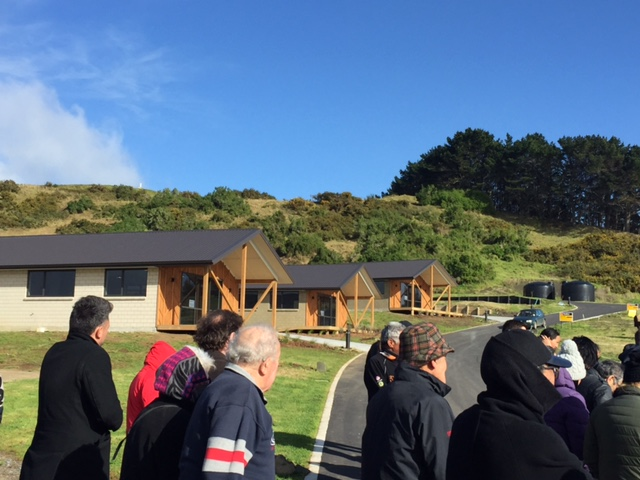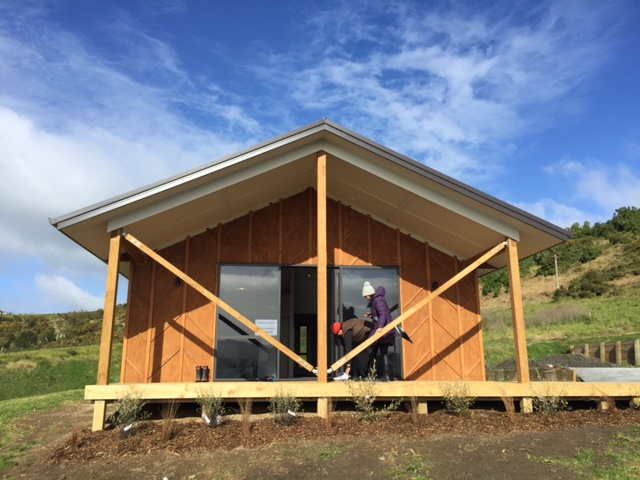Three whānau moved into their new homes as part of the completion of stage one of Te Kopua 2B3 papakāinga scheme in Raglan.
Published: Rāapa, 21 Mahuru, 2016 | Wednesday, 21 September 2016

Te Kopua 2B3 Incorporation officially opened the papakāinga rental homes on Friday. The homes have been built as part of a vision to provide affordable housing options for whānau that affiliate to the Tanui-Tahinga hapū collective.
The hapū collective comprise of Ngāti Koata, Ngāti Te Ika and Ngāti Tahinga.

A total of 11 homes and 4 leasehold sections (to be sold to owner occupiers) are planned for the Te Kopua 2B3 land block, with 3 two bedroom kaumātua properties being built as a part of stage one. Stage two of the papakāinga project includes building 4 rental properties.
Noteworthy that the Kopua 2B3 Incorporation did not seek a capital grant from the government to contribute towards the building of the 3 papakāinga homes.
The opening marks a significant milestone for the descendants of the original landowners who will get the papakāinga homes their tipuna fought for decades ago.
Recent history includes forced conversion of the communal land into shareholdings, and during WWII, the government claimed two thirds of the land and demolished their first settlements of homes for a military airfield. In 1978 the great Eva Rickard led a protest campaign to return the land. The land was returned the following year.
One of the landowners refused to completely vacate the land and the hilly portion of Te Kopua, and through a series of partitions and amalgamations, became Te Kopua 2B3. The Te Kopua 2B3 Incorporation was established in 1963.
Since 1993, the shareholders have been pursuing the development of a papakāinga. Unfortunately due to

waste water infrastructure issues and a lack of available cash the development of the papakāinga has been slowed down.
Funding from the SHAZ Grant was used to complete planning, organisational capability, engineering, design and financial modelling.
More recently funding of $632, 442 from a Kāinga Whenua Infrastructure Grant contributed towards necessary civil works such as roading, stormwater, power and wastewater systems and this was sufficient to kickstart the papakāinga.
